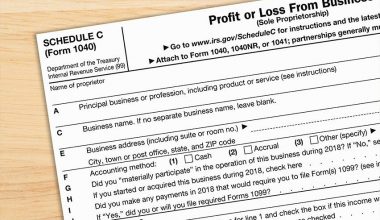My business operating expenses are way too high, and this is greatly reducing my overall profit! Come on, is it possible to do away with this expense or reduce it to the lowest minimum possible in my business? Can I also offset my operating expenses with my production unit annually? Well, you just have to wait a little longer to find out. This guide answers the above questions as well as other queries you may have about the operating expenses. Additionally, we included depreciation operating expense, its formula, what it’s about, and some examples.
What Is Operating Expense?
Operating expenses refer to all the costs a business incurs in the course of its operation, but these costs are not traced to its production process. In other words, operating expense is the sum of all the costs of a company’s operations that are not directly related to the production of its goods or services. Operating expenses are also known as OPEX. These costs include selling, general and administrative costs, and so on. When they are uncategorized, they include rent, inventory costs, equipment, marketing, payroll, insurance, research and development funds, fueling, lightning, and so on.
Additionally, if a firm operates to make a profit, the Internal Revenue Service (IRS) enables it to deduct operational expenses.
Operating Expense In Practice
Every business incurs costs of operation at some point or another. Even if your business is not into the production of products, you will still incur operating costs. For instance, a freelancer who works online will have to pay his subscription fee, light bill, and other expenses.
So it is part of every business expenditure. Generally, operating expenses are necessary and inevitable in every business.
One of the most common challenges that management has is identifying how to cut operating costs without compromising a company’s ability to compete.
Some businesses have been successful in lowering operating costs to obtain a competitive advantage and improve profits. Even though there are businesses that effectively cut down on their OPEX, there is a need to be careful when doing this. Why? because cutting operating costs might put the integrity and quality of operations at risk. Finally, there are operating and non-operating expenses.
Operating Expenses vs Non-operating Expenses
To better under this, let’s see what each of these is; A non-operating expense refers to expenses incurred by a company that are not related to its primary operations. These are expenses that are neither traced to production nor business operations. Highlighting them as what they are in your financial record makes it easy for key people to understand your business performance.
Differences Between Operating Expenses & Non-Operating Expenses
| OPERATING EXPENSES | NON-OPERATING EXPENSES |
| These are expenses incurred from the day-to-day running of the business. | Non-operating expenses refer to expenses that are not traceable to the production process or the day-to-day running of the business. |
| When it comes to where OPEX is found in an income statement, it is located above the non-operating expenses. | Generally, you find the non-operating expense located below the operating expenses in the income statement. |
| Operating expense examples include rent, wages, salaries, travel, sales and marketing expenses, and so on. | Examples of these include interest, disposal of assets, and so on. |
Capital Expense VS Operating Expense
Capital expenses are costs that can be capitalized for tax purposes. They are generally the costs of upgrading assets or purchasing new capital assets. Examples include plants and machinery, property, equipment, and so on. While operating expenses are the costs of running a business on day to day basis.
| CAPITAL EXPENSES | OPERATING EXPENSES |
| Capital expense refers to the cost of purchasing new assets. It also refers to the cost of upgrading an existing asset. | Operating expenses, on the other hand, refer to the expense that arises from running a business daily. |
| Generally, capital expenses are capitalized for tax purposes. | Once a business exists to make a profit, IRS permits it to subtract its Operating expenses. |
| Capital expenses can either be capitalized or written off over time. It cannot be written off as a one-time record. | Operating expense is written off every year. |
Depreciation Operating Expense
In bringing up the subject of depreciation, people wonder if it is an operating expense. Why is this so? Because we already know operating expenses are costs arising from the day-to-day running of a business, depreciation seems far from this explanation. However, let’s briefly explain what depreciation is to fully grasp why it is an operating expense.
What is Depreciation?
Depreciation means loss of value. Companies buy assets for the production of their goods as well as services. Generally, as these assets are used daily, they lose their value. Owners of these assets, therefore, capitalize on them and depreciate their value over time. This will go on till they are sold at scrap value. To further simplify this a bit, when you buy a vending machine, it doesn’t last forever, right? Each year, as the machine is used, it losses its value.
This is what depreciation is all about, using accounting methods to locate, or ascertain, a place for the expense of a tangible asset over its useful life. It also focuses on keeping track of the asset’s loss of value. Moreover, every tangible asset wears out over time. To ascertain the useful life span of your assets, check out the IRS Modified Accelerated Cost Recovery System. It also includes guidelines on what exactly passes for an asset you can depreciate.
IRS Guideline On Depreciation Of Assets
- According to the IRS, any asset a company will depreciate must belong to the company.
- The asset a company will depreciate must also have a lifespan of more than one year.
- The purpose of acquiring an asset must be to generate revenue for your business.
- Finally, you can determine Its service life. This means it can be calculated.
Why Is Depreciation Classified as an Operating Expense?
Depreciation is the process of converting a fixed asset into a cost regularly as the asset is used in normal business activities or operations. Therefore, depreciation is considered an operating expense because the asset is used in routine business activities. To further buttress this, look at it this way. A company usually spends money to acquire its assets. Depreciating the value of that asset over the estimated number of years is just a little way of saving up to upgrade the asset as well as purchase a new one.
Moreover, stakeholders get to see the depreciation figures and make plans to purchase a new one. Finally, since depreciation also provides tax benefits to a business, it can be used to offset revenue under tax regulations. You know the rule about taxes; a higher depreciation expense, lowers the taxable income, and hence the greater the tax savings.
Operating Expense Examples
Before we get on to the operating expense example, let’s see what passes as an OPEX in A company’s expenses. We can present this in various categories such as sales and marketing, Office related, compensation-based, and so on.
Sales and Marketing Base OPEX
The following are some examples of the operating expense we find under sales and marketing;
- Direct mail expenses
- Travel expenses
- Costs of advertising
- Costs of entertainment
Office-Based Operating Expense Compensation
The following are some examples of the operating expense we find under office expenses
- Costs of utilities
- Accounting expenses
- Insurance premiums
- Non-production facility rental costs
- Legal expense
- Property taxes
- Depreciation
- Office equipment
- Non-production facility repair expenses
Compensation Based Operating Expenses
The following are some examples of the operating expense we find under-compensation expenses;
- Non-production employees’ compensation as well as related payroll tax expenses
- Contributions to non-production employees’ pension plans
- Benefits that are given to workers that are not in the production department and so on.
Operating Expense Formula
I’m super glad you have a clear understanding of what operating expenses are. Well, that’s great. Let’s get on to the operating expense formula using a business report to calculate it. But Then, you need to know this. Operating costs differ from one company to the next, and this is because the nature of their businesses differs.
The operating expense formula depends greatly on a business’s expenses. This means the kind of activities a business deals with, determine its operating expense formula or how it is calculated. However, the formula for operating expense is the total of all costs incurred in the course of running a business.
How to calculate operating Expense Using Its Formula
To further clarify things, let’s consider this example. Tracy Munroe runs a factory that produces dairy products. The following were the operating expense excerpt for 2021.
| Operating Expenses | Amount $ |
| Supplies | 15,000 |
| Wages & Salaries | 200,000 |
| Travel | 10,000 |
| Marketing Expenses | 3,500 |
| Rent Expense | 60,000 |
| Administrative Expense | 5,000 |
| Utilities | 15,000 |
| Maintenance and Repairs | 20,000 |
| Insurance Expense | 10,000 |
| Research and Development | 3,000 |
| Total | 341,500 |
Using the operating formula above, Tracy diary company has accumulated a total of $341,500 in 2021.
What are operating expenses and income?
Administrative, selling, or general expenses are examples of operating expenses, which are inherently recurrent costs incurred to run a business. Since both metrics indicate profit before non-operating costs like interest or taxes, operating income and EBIT are interchangeable.
Where are operating expenses?
The income statement of an organization shows the operational expenses, also known as OpEx. They aid firms in calculating their profitability together with non-operating costs.
Is operating expense an income?
A company’s operating income and operating expenses are both crucial indicators of its financial performance. The two, however, are not the same. A measure of profitability is operating income, while a measure of costs is operating expense.
Is operating expenses an asset or liability?
A company’s operating expenses are listed as a liability on its balance sheet. Employee pay, rent and utilities, tools, materials, and equipment, as well as marketing costs are examples of operating expenses, which are necessary costs related to running a firm.
What is not included in operating expenses?
Interest on debt, the cost of restructuring, inventory write-offs, and settlement payments for legal actions are a few examples of non-operating expenses. Stakeholders can have a clearer picture of the performance of the business by discrepantly recording non-operating expenses from running expenses.
Is operating expense a tax?
The answer is that some taxes, such property taxes, payroll taxes for employees, and any other taxes pertaining to operational activity, are regarded as operating expenses. In contrast, non-operating expenses include taxes of different kinds, such as income taxes.
Is operating expense an equity?
When a corporation makes a profit, its owner’s equity in that company increases, and when it makes a loss, it decreases. The amount of money a firm spends on its running expenses, or operating expenses, determines how much money it makes or loses. Therefore, variations in operational costs inevitably have an impact on owner’s equity.
Conclusion
Mostly, businesses lookout for ways to do away with the operating expense, this however is almost impossible. You will have to operate your business daily. Unfortunately, doing this will incur expenses. Rather than waste time trying to do away with it, come up with a strategy for managing it. Why is this a better alternative? It is because focusing your energy on managing is more productive and achievable. Besides, if the cost of operation is such a big deal, what will you do with non-operating expenses?
FAQs On Operating Expenses
What are the 3 common categories of operating expenses?
The following are the three main categories of OPEX Payroll-related expenses, Administrative or Overhead expenses, and Sales and Marketing.
Is the cost of finance an operating expense?
Remember OPEX are costs incurred during the daily operation of a business. They are not traceable to production your production costs. Since the finance-related costs are not part of this, they generally should be part of it. Also, they are non-operating expenses.
What are ovcerhead cost?
Overhead costs are all the indirect costs of running a firm. Generally, these ongoing costs help your firm run smoothly. However, they are related to the creation of a product or service. In other words, they are part of the operating expenses of a business.
- Profit and Loss Statement Explained!!! How to Read & Create P&L Statement
- Single Step Income Statement: Definition, Examples, Comparisons & Format
- DEPRECIATION ACCOUNTING: Definition, Methods, Formula & All You Should Know
- Income Statement Explained!!! What is an Income Statement? Formulas & Elements
- ACCUMULATED DEPRECIATION: Calculation & Examples






